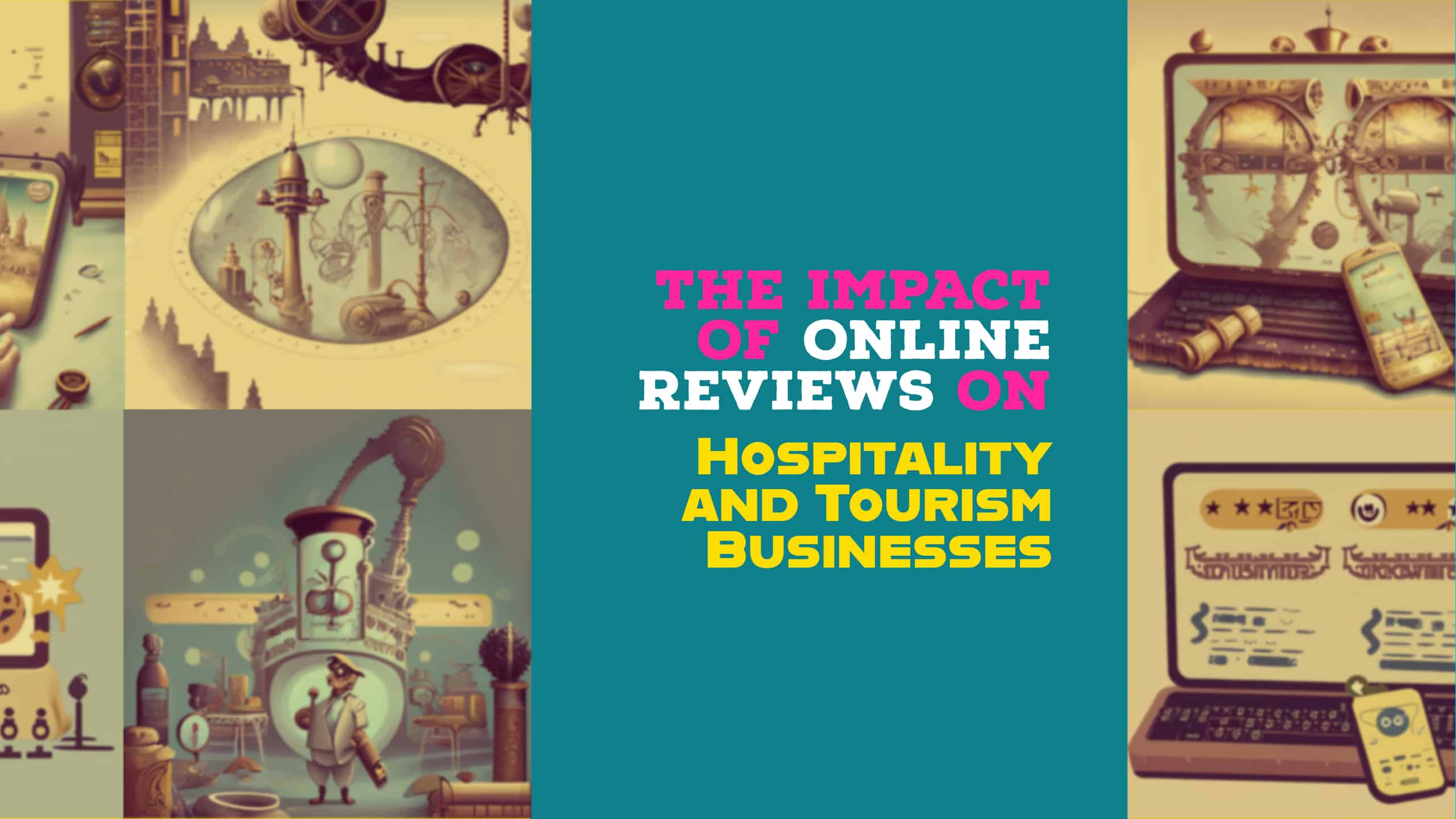Table of Contents
TL;DR: The Impact of Online Reviews in Hospitality and Tourism
- Powerful Influencers: Online reviews, driven by Social Proof theory, significantly influence customer decisions in the hospitality industry.
- Building Trust: Positive reviews build trust and credibility, leading to increased bookings and revenue, while negative reviews must be managed carefully.
- Strategic Marketing: Businesses can leverage positive reviews in marketing materials, using User-Generated Content to enhance their image.
- Response Matters: Timely and personalized responses to reviews demonstrate commitment to customer satisfaction and service quality.
In today’s digital age, have you ever wondered how a simple online review can shape the fate of a hospitality or tourism business? Online reviews have emerged as pivotal influencers in the hospitality and tourism industry, swaying customer opinions and decisions. The power of these reviews stretches far beyond a mere rating; they encapsulate the essence of online reputation management, crucial for any business in this sector. Let’s embark on a journey to understand how these digital feedback mechanisms are reshaping hospitality businesses and tourism ventures.
The Power of Online Reviews
The influence of online reviews on consumer behavior is a phenomenon well-explained by the Social Proof theory, which suggests that people are influenced by the actions and opinions of others. In the context of hospitality and tourism businesses, this means that prospective customers often look to reviews to gauge the quality and reliability of a service. For instance, a hotel with numerous positive reviews on platforms like TripAdvisor or Yelp is more likely to attract new guests. These reviews, serving as digital word-of-mouth, have a significant impact on consumer decision-making.
A study by BrightLocal revealed that a whopping 87% of consumers read online reviews for local businesses in 2020, highlighting their reliance as a trusted source of information. In this digital age, the sheer volume and accessibility of online reviews have amplified their impact, making them a cornerstone of customer trust and business credibility in the hospitality sector.
Building Trust and Credibility
Online reviews play a crucial role in building trust and credibility, which are essential commodities in the hospitality and tourism industry. Positive reviews can significantly enhance a business’s reputation, leading to increased bookings and revenue. The Halo Effect, a cognitive bias where an initial positive impression influences subsequent judgments, can be seen here. A customer’s positive review creates a halo around the business, often leading others to overlook minor issues.
Conversely, negative reviews must be managed carefully, as they can have the opposite effect. For example, a study by Harvard Business Review found that a one-star increase in a Yelp rating could lead to a 5-9% increase in revenue for restaurants. This demonstrates the tangible impact of online reviews on business success.
Leveraging Online Reviews for Marketing
Online reviews can be strategically leveraged in marketing plans to enhance a business’s appeal and reach. Incorporating positive reviews into marketing materials and sharing them on social media platforms can significantly amplify a business’s positive image. The concept of User-Generated Content (UGC) is relevant here; it involves using customers’ own words and experiences as a powerful marketing tool.
For example, a resort might feature guest reviews in its promotional emails or on its booking webpage, offering authentic testimonials to prospective customers. This approach not only provides social proof but also enriches the business’s narrative, making it more relatable and trustworthy to potential clients.
Responding to Online Reviews
Responding to online reviews is a critical aspect of reputation management. Timely and personalized responses to both positive and negative reviews demonstrate a business’s commitment to customer satisfaction and service quality. The Service Recovery Paradox can be applied here: a well-handled response to a negative review can often result in a higher level of customer satisfaction than if the service failure had not happened at all.
For instance, a hotel responding empathetically to a negative review and offering to rectify the issue can improve its standing with not just the reviewer but also potential customers reading the review. Effective response strategies, therefore, play a vital role in mitigating the impact of negative reviews and reinforcing positive customer perceptions.
The Future of Online Reviews in Hospitality and Tourism
Looking ahead, the landscape of online reviews in hospitality and tourism is set to evolve with technological advancements. The rise of influencer marketing, the increasing importance of real-time review management, and the potential application of AI in analyzing customer feedback are trends shaping the future. Staying abreast of these changes and adapting accordingly will be key for businesses striving to maintain a competitive edge.
Conclusion
In conclusion, the influence of online reviews in the hospitality and tourism industry cannot be understated. They are more than mere feedback; they are the building blocks of a business’s online reputation, influencing customer decisions, building trust, and shaping marketing strategies. As we move forward, embracing and managing these digital voices will be crucial for businesses aiming to thrive in the competitive landscape of hospitality and tourism.
Frequently Asked Questions (FAQs)
- How do online reviews impact customer decision-making in hospitality? Online reviews significantly influence customer choices by providing trusted insights into the experiences of other travelers.
- Can negative reviews be beneficial for businesses? Yes, negative reviews, when responded to effectively, can showcase a business’s commitment to customer service and improvement.
- Why are online reviews important for marketing? Online reviews serve as authentic testimonials, enhancing marketing efforts by providing genuine customer experiences.
- How should businesses respond to online reviews? Businesses should respond to reviews in a timely, personalized manner, addressing any concerns and appreciating positive feedback.
- What is the future trend for online reviews in this industry? Emerging trends include influencer marketing, real-time review management, and AI-driven analysis of customer feedback.





